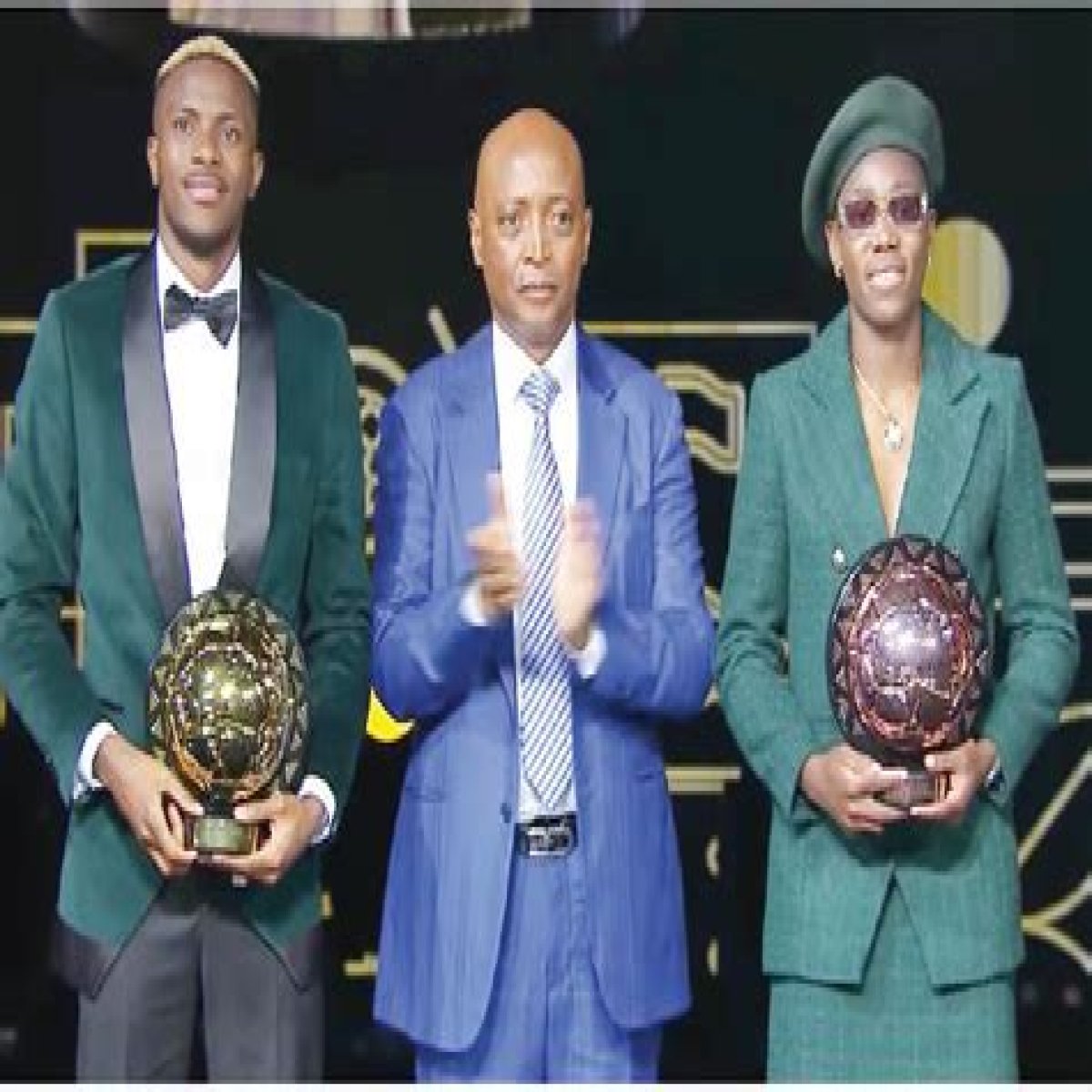The individual awards given out by the Confederation of African Football to three Nigerians in the 2023 ceremonies provide an opportunity for Nigeria’s football administrators to revitalize the sport in the country. Nigeria, traditionally second best, dominated this time around as Victor Osimhen, the Napoli striker, clinched the Men’s African Player of the Year award. Asisat Oshoala, Chiamaka Nnadozie, and the Super Falcons also secured top honors in various categories during the event in Marrakech, Morocco. These accolades serve as a reminder of the abundant potential of Nigerian football and, if capitalized on, could usher in a new era.
In a team sport where success is often associated with individual excellence, Osimhen’s award underscores his exceptional talent. He emerged as the top scorer in the 2022/23 Italian season, netting 26 goals and guiding Napoli to their first championship in 33 years. This remarkable achievement earned him the Player of the Year award, a feat last accomplished by a Nigerian when Nwankwo Kanu won it in 1999.
The women footballers also shone brightly. Oshoala, who claimed the UEFA Champions League title with Barcelona, received the women’s POTY crown, marking her sixth win and highlighting her invaluable contribution to the Super Falcons.
Nnadozie of Paris FC was named the Best Goalkeeper of the Year by CAF, further cementing Nigeria’s dominance in women’s football on the continent. The Falcons proved their mettle by advancing from a challenging group in the 2023 FIFA Women’s World Cup, where they pulled off a remarkable 3-2 victory against hosts Australia in the round-robin stage. Despite a disappointing loss to England in the round of 16, their outstanding performance reignited the flame of excellence for the record African champions.
While these prestigious awards create an illusion of Nigerian football returning to its golden era, it is crucial to recognize that individual accolades can only make a difference when the Nigeria Football Federation (NFF) establishes a solid foundation.
For a long time, signs of decline have been evident with sporadic moments of success. The performance of the men’s national team – the Super Eagles – has stagnated following their African Cup of Nations triumph in 2013.
Although the Eagles secured World Cup berths in 2010, 2014, and 2018, their best showing was reaching the second round in Brazil. They finished at the bottom in 2010 and third in their group in Russia. To make matters worse, they failed to qualify for the 2022 Finals in Qatar. Disappointingly, they have already drawn their first two qualification matches for the 2026 Finals.
Currently, the country’s youth teams struggle to qualify for FIFA tournaments, and the local clubs are far from the standard of the best in African football. Furthermore, Nigerian players in the Eagles squad are scarce in the ranks of top European clubs. Struggling in average teams, they find it challenging to replicate their club form at the national level. The dominance of the Falcons, the best team in Africa, is also being threatened by the likes of Equatorial Guinea, Morocco, and South Africa.
To fully leverage the impact of these awards, football administrators, along with federal and state governments, must prioritize the development of the sport. The first step involves enhancing professionalism in the domestic league. England, following the revamping of its championship in 1991, transformed its fortunes, allowing the Three Lions to consistently feature in major tournaments. Nigeria needs a strong domestic league to nurture talents.
The NFF should operate with responsibility and uphold high organizational standards. The federation’s failure to pay coaches and outstanding bonuses owed to players are significant disincentives.
At all levels, the government should make substantial investments in sports infrastructure, a stark contrast to the current struggle of the Eagles and the Falcons to secure venues for their home games.
